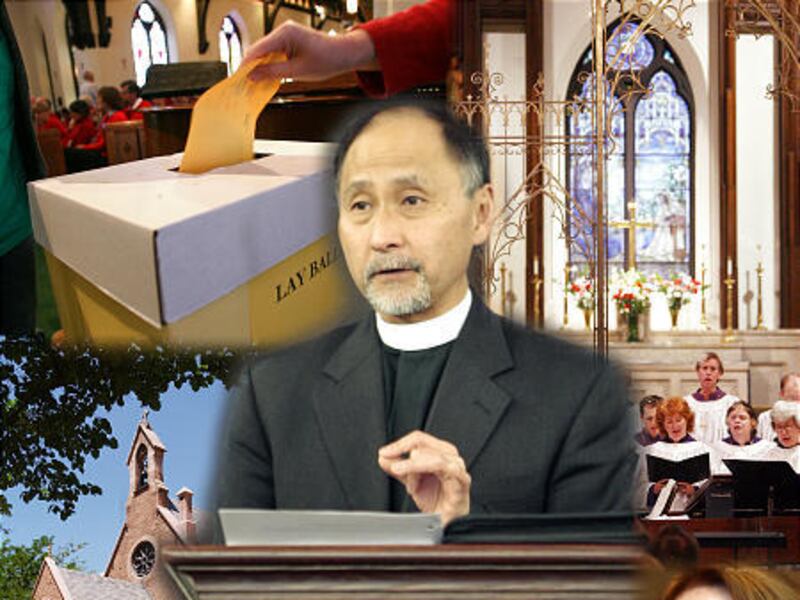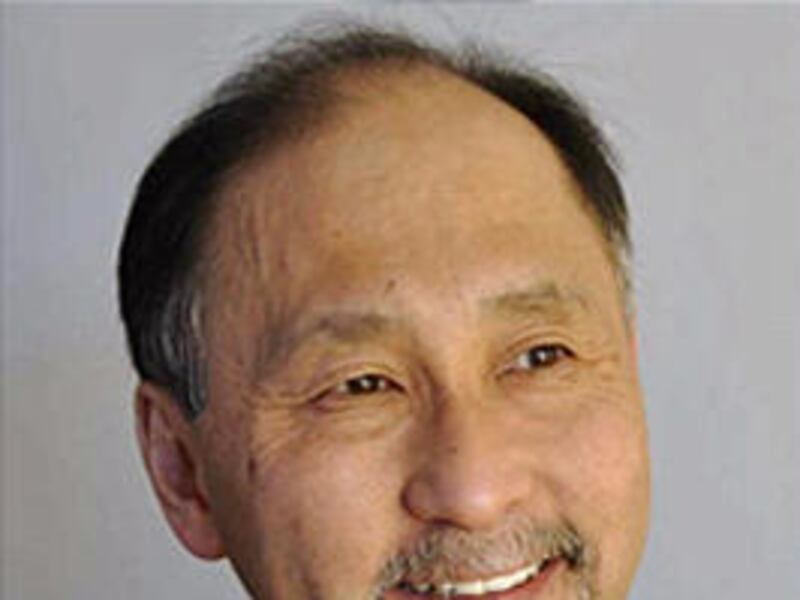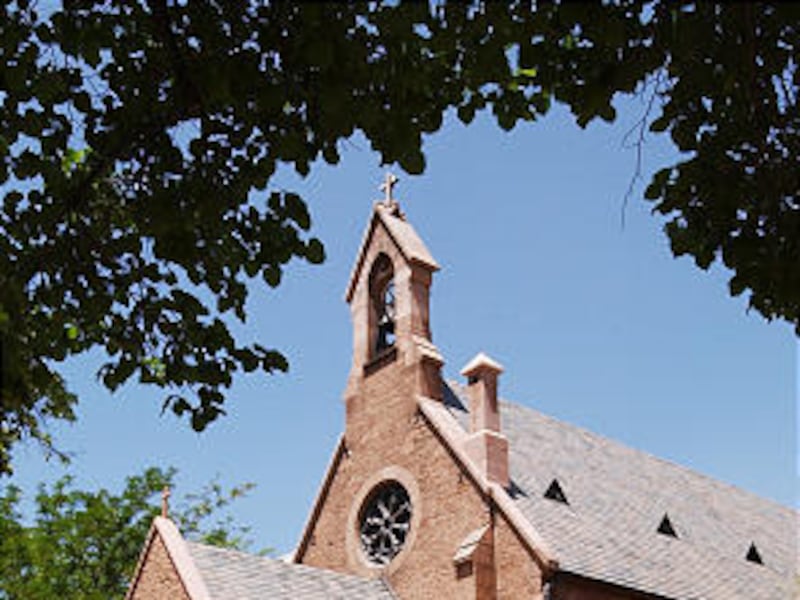SALT LAKE CITY — The recent selection of Utah's new Episcopal bishop-elect presents a study in contrasts for members of the statewide diocese, who will say goodbye to their retiring leader, Bishop Carolyn Tanner Irish, this fall.
Gender is the most obvious difference, followed by family of origin. The Rev. Scott Byron Hayashi's Asian childhood includes a self-described "un-churched" nuclear family. He is still "the only active Christian" among them.
Bishop Irish's family heritage runs generations deep inside the Mormon church, of which she was a child-
hood member before becoming an Episcopalian. Her father, businessman and philanthropist O.C. Tanner, was a community leader and paved the way for his daughter's success in the jewelry company he founded.
The Rev. Hayashi returns to Utah not as the son of a widely known community leader, but relatively unknown outside of Ogden, where he served as rector of Good Shepherd Episcopal Church for eight-plus years, creating a program for inner-city youths that continues today.
He and his wife will celebrate their 29th wedding anniversary Sunday and have raised three daughters together, with the youngest still in high school. Bishop Irish's first marriage dissolved, and she spent years as a single mother of four before marrying again within the past decade.
She was the third female bishop ever elected in the Episcopal Church and returned to Utah as a ground-breaker of sorts, who was delighted at her role in what many considered the church's most conservative diocese. The Rev. Hayashi said he had never considered or desired the bishop's role and applied only after a friend and fellow priest from Utah persuaded him to allow his name to be placed in consideration.
As Utah's new Episcopal shepherd, his new assignment means people will compare his ministry with that of Bishop Irish's, and he's OK with that.
When asked if being bishop anywhere had ever been a goal, he said, "The short answer is no," though in the latter part of his career, people began asking whether he would be interested at some point.
"I pretty much rejected that as well. It just wasn't on my to-do list. But there's this thought in the church that says if the church calls you, you have to pay attention. The church at large started calling me and inviting me into processes. Sometimes I said 'no thank you' and other times I would say yes, but (being a bishop) was one of those things that didn't seem as if that was my calling."
In fact, the Rev. Hayashi would still be focusing solely on his current post as Canon to the Ordinary in the Diocese of Chicago had it not been for Shannon Leach, the former rector of St. James Episcopal Church in Midvale. Leach called the Rev. Hayashi a few months back, asking if he could nominate the Rev. Hayashi for bishop.
"It came as a surprise to me, because I thought Utah had already pretty much completed their process. I wasn't seeking to become a bishop, and I don't track elections in the church. He told me they were receiving names and would I consider it. At that point, I spoke to my wife about it and she said she would be very happy to return to Utah. With that conversation, there was a sense of peace about it, so I told Shannon he could send my name across."
The family plans to move to Salt Lake City in August and will be in Utah shortly to check out the local high schools and to house-hunt. Though he never expected to return to the Beehive State until the election last month, "I can't tell you how happy I am because I loved being there," he added. "One of the happiest times of my life was working in Ogden. I loved the state and the people."
During his first stint here, beginning in 1989, the diocese had recently sold St. Mark's Hospital and was grappling with how to handle the sudden influx of cash. He remembers it was "a challenge on how to shift into suddenly being what was considered among members to be an extremely wealthy diocese."
The Utah church is "something the diocese is still growing into, he said. "It provides great opportunity, but it's also a challenge in the sense of knowing how to best utilize those resources."
Because the national church has been struggling with ordination of gay bishops and just recently passed a resolution saying bishops should offer a "generous pastoral response" when asked to bless a same-sex union, the Rev. Hayashi said he will work with local members "on a case-by-case basis" to determine how best to offer encouragement.
While he supports the church's stand, he said he doesn't believe in setting a mandate for "a congregation that doesn't want to go there. That's not the spirit of the resolution itself. I don't think you can find anyplace where everyone is of one mind on anything, frankly.
"That's why a lot of listening just has to happen. We're not one size fits all … my first task is to spend time learning," with visits to congregations throughout the state "as much as possible. I need to interact with people in the congregations and just listen.
"Only then can one really have enough wisdom to see clearly what course to take. Anything else would be foolish," the Rev. Hayashi said.
He's actually looking forward to the long drives between far-flung congregations throughout the state. "I don't turn on the radio or listen to an iPod … that's a time for me to be with God. In the course of being the bishop, I need to carve out that kind of time."
The Rev. Hayashi foresees challenges as the leader of a "very small faith group compared to the LDS Church," though he looks forward to a wider community role. "When we're baptized, we make a vow then to strive for justice and peace and to respect the dignity of every human person.
"If there are needs for advocating justice in the larger community, I would expect to speak and be engaged on those things … I want to be involved politically and be a leader in that as well; that's part of it. To me, that's a fundamental to the role of the bishop and fulfillment of vows that I made."
Most of all, the Rev. Hayashi said he looks forward to the depth of faith Utahns have and "just being gracious to people and how to see beyond differences in belief" — a very profound lesson he said he learned in Ogden.
"It gave me a sense there really was the possibility of disparate believers being able to be together and cooperate. If we can't be a people on this planet that, in spite of differing beliefs, can't get along and even carry one another as needed, there's not much hope for us."
And to any who wonder if the Rev. Hayashi has forgotten the colloquialisms that make Utah unique, he has a ready answer: "Deseret means 'honeybee' and 'oh my heck' is a part of the local lingo."
email: carrie@desnews.com



